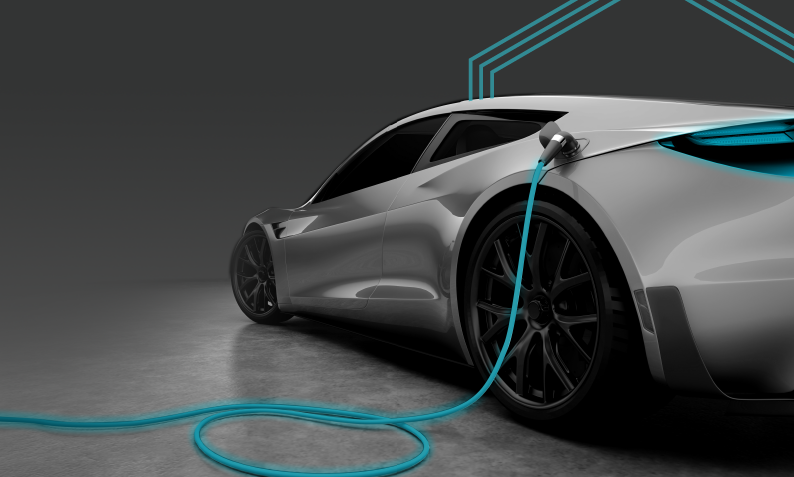The rise of electric vehicles is irrevocably changing the Automotive industry, necessitating the reimagining of supply chains, modernisation of operating models and electrification of infrastructure all over the world. So, how is e-mobility currently shaping the market and what can organisations do to leverage the opportunity? Find out, here.
Introduction
E-mobility – the rise of electric vehicles (EVs) – is irrevocably changing the Automotive industry, necessitating the reimagining of supply chains, modernisation of operating models and electrification of infrastructure all over the world.
While the true scope of the transformation is just beginning to emerge, it is clear that we have reached a tipping point in the market, which in many ways was accelerated by the effects of COVID-19. So, what do we know about how e-mobility is currently shaping Automotive, and how can organisations ensure they are ready to leverage future opportunities?
An Industry in Flux
EVs have become an increasingly prominent part of the mainstream Automotive market over the last several years, and their popularity is expected to increase exponentially in the future. Despite the challenges of the past 18 months, EV sales have continued to rise overall, and OEMs around the globe are gearing up to deliver new models.
Regulations around the emissions of traditional internal combustion engines, growing public awareness of the climate crisis, rapid urbanisation and consumer demand are driving the shift to electrification. Add to this the greater accessibility of EVs resulting from reduced vehicle costs, government incentives, a wider range of offerings and expanding charging networks, and it is easy to understand why e-mobility represents one of the biggest innovations the sector has seen in decades.
Although there is some uncertainty about the timeline for large-scale adoption, the pressure is on companies to embrace the changes and maintain their competitive edge. According to a recent report from Modis, 64% of the Automotive companies surveyed anticipate that e-mobility will have a significant impact on their strategy over the next three years, and 32% say they have already adopted a new business model in response to the trends.
The consensus is that autonomous vehicles and shared ownership arrangements will take over the market in the next five to 10 years.
E-Mobility and COVID-19
COVID-19 had major repercussions for industries across the board and Automotive is no exception to this, with many consumers pushing back purchase decisions and changing their mobility behaviour. However, despite a general downturn in vehicle sales at the peak of the pandemic, the EV market showed remarkable resilience and quickly recovered after a brief slowdown. This could be attributed to a number of factors, one of which is the way COVID-19 highlighted the importance of looking after the environment.
A report from the European Alternative Fuels Observatory found that the negative effect of the pandemic was short-lived, with EV registrations surging since May 2020 and some markets showing higher registration numbers than they did before COVID-19. The markets that experienced the most significant growth were Slovakia, Greece and the Czech Republic, but almost all European markets recorded higher total electric passenger car registrations compared to the previous year.
On a global scale, this trend continues, with the United States being the notable exception. Research by McKinsey & Company revealed that:
Chinese EV sales are expected to increase from 1.2 million in 2019 to between 2.4 million and 3.5 million in 2022 (about 300,000 more than was predicted pre-COVID-19, growing the EV market share from 5% to 11-14%).
European EV sales are expected to increase from 600,000 in 2019 to between 2 million and 2.9 million in 2022, with the EV market share surpassing pre-crisis projections at 12-15% by 2022.
EV sales were already decreasing in the United States prior to the pandemic and this is set to continue, with the EV markets in China and Europe being much more likely to see positive long-term growth than the US.
On the whole, if we remain on the current trajectory, it’s safe to say that e-mobility could emerge from COVID-19 in an even stronger position than it was before – a claim that can’t be made by many other industries in the wake of this disruptive global event.
Preparing for the Future
Moving forward, creativity, agility and strategic thinking will be crucial for businesses in the Automotive sector to cope with future uncertainties and capitalise on the widespread opportunities surrounding electrification. The good news is that there is plenty of confidence to be found, with Modis revealing that 88% of companies have a clear vision for their e-mobility strategy and 85% feel prepared to execute it.
Nevertheless, one of the key challenges that organisations will face is securing the knowledge and technical skills necessary to fully embrace e-mobility. The demand for skills such as cybersecurity, application development and AI is immense, but competition is fierce, and the talent pool is struggling to keep up. While in-house professional development will play a growing role in closing skill gaps, 36% of the organisations surveyed by Modis expressed concerns about their ability to develop e-mobility expertise.
Consequently, strategic hiring will be essential for thriving in the future Automotive industry. Regardless of how well-thought-out its e-mobility strategies may be, the success of an organisation hinges on its people, which is why leveraging the services of a specialist recruitment agency will give companies a decisive advantage in the market.

